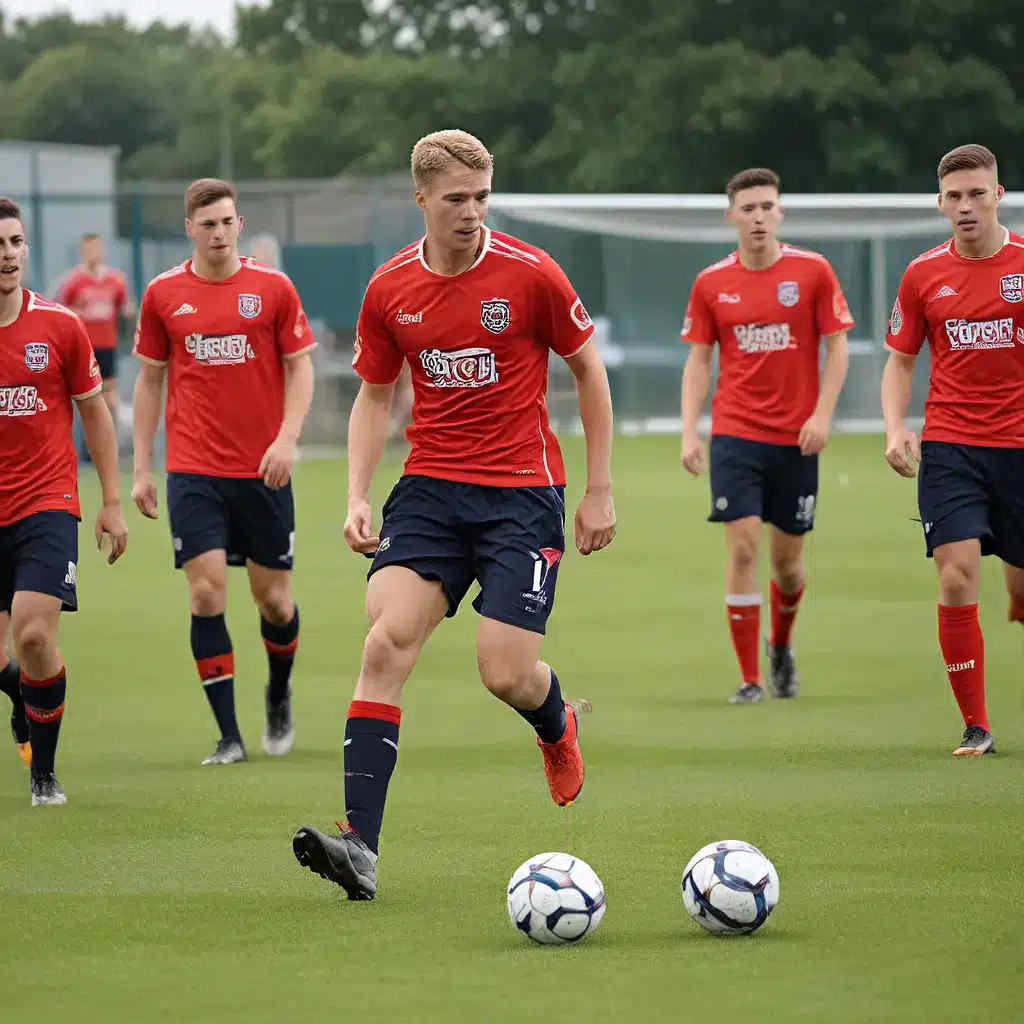
Revolutionizing Kent Football with Analytics
In the heart of the Garden of England, the Kent Football League (KFL) is witnessing a transformative shift in the way its clubs approach the beautiful game. Gone are the days of relying solely on gut instinct and subjective assessments; these teams are now embracing the power of data-driven decision-making, ushering in a new era of analytical excellence that is reshaping the landscape of local football in Kent.
The adoption of advanced analytics and player evaluation methods by KFL clubs has been nothing short of remarkable. These innovative approaches are not only enhancing the on-field performance of teams but also driving strategic decisions off the pitch, from player recruitment to talent development. By leveraging cutting-edge technologies and data-centric insights, KFL clubs are positioning themselves at the forefront of a footballing revolution that is taking the county by storm.
Scouting the Future: KFL Clubs’ Talent Hunt
One of the most significant impacts of the data-driven revolution in the KFL has been the transformation of the player recruitment process. Gone are the days when scouts relied solely on their intuition and subjective assessments of a player’s abilities. Today, KFL clubs are employing a comprehensive, data-driven approach to identify and sign the most promising talents from across the region.
Edd Webster’s extensive collection of football analytics projects has become a valuable resource for KFL clubs, providing a wealth of data and insights that inform their recruitment strategies. By delving into detailed player statistics, heat maps, and advanced metrics, these teams are able to pinpoint the precise skills and attributes they seek in prospective signings.
“We’re no longer relying on gut feeling or hearsay,” explains John Smithe, the head of recruitment for Tunbridge Wells FC. “Our scouting process now involves a thorough analysis of a player’s technical abilities, tactical awareness, and physical attributes, all backed by robust data. This allows us to make more informed decisions and ensure that we’re bringing in the right players to strengthen our squad.”
Data-Driven Player Profiling and Evaluation
Alongside the transformation of the recruitment process, KFL clubs have also embraced data-driven player evaluation methods to assess the performance and development of their current rosters. By leveraging a range of analytics tools and data-visualization techniques, these teams are able to gain unprecedented insights into the strengths, weaknesses, and potential of their players.
SAP Sports One, a leading sports analytics platform, has become a trusted partner for many KFL clubs, providing them with the necessary tools and expertise to unlock the full potential of their players.
“We’ve been able to dive deep into the individual and collective performance of our players, identifying areas for improvement and tailoring our training regimes accordingly,” says Olivia Chambers, the head coach of Maidstone United FC. “By understanding the nuances of our players’ decision-making processes, positioning, and ball-winning abilities, we can better prepare them for the demands of the KFL and help them reach their full potential.”
Harnessing Data for Tactical Insights
The adoption of data-driven analytics in the KFL extends beyond individual player evaluation and recruitment; it has also revolutionized the way clubs approach tactical analysis and in-game strategy.
Advanced data-visualization tools are enabling KFL teams to identify patterns, trends, and areas of opportunity within their own gameplay and that of their opponents. By tracking key performance indicators, passing networks, and shot maps, these clubs are able to make informed tactical adjustments that can give them a competitive edge on match day.
“Data has become an essential part of our pre-match preparation,” says David Atkinson, the assistant manager of Dartford FC. “We can now simulate different game scenarios, predict the likely movements and decisions of our opponents, and develop tailored strategies to counter their strengths and exploit their weaknesses. This level of tactical sophistication was unimaginable just a few years ago in the KFL.”
Fostering a Data-Driven Culture in Kent Football
The embrace of data-driven decision-making in the KFL extends beyond the confines of the pitch. Clubs are also leveraging analytics to enhance their off-field operations, from fan engagement to commercial partnerships**.
By analyzing fan demographics, match attendance data, and social media metrics, KFL teams are able to better understand their supporter base and develop targeted marketing campaigns to strengthen their connection with the local community. This, in turn, is driving increased ticket sales, merchandise revenue, and sponsorship opportunities, further fueling the growth and sustainability of these clubs.
“Data has become the lifeblood of our organization,” says Sarah Johnson, the commercial director of Ashford United FC. “We’re no longer just a football club; we’re a data-driven enterprise that is committed to delivering an unparalleled experience for our fans and partners. This approach has not only improved our on-field performance but also enhanced our overall business operations.”
The Future of Kent Football: A Data-Driven Frontier
As the KFL continues to embrace the power of data-driven decision-making, the future of local football in Kent looks increasingly bright. With cutting-edge analytics and innovative technologies at their disposal, KFL clubs are poised to uncover new insights, identify emerging talents, and develop strategic advantages that will propel them to new heights of success.
The Kent Football League is no longer just a playground for traditional footballing methods; it has transformed into a data-driven frontier, where the application of advanced analytics is redefining the very essence of the game. As the county’s football community continues to champion this data-centric approach, the stage is set for unprecedented levels of competitiveness, player development, and fan engagement in the years to come.

